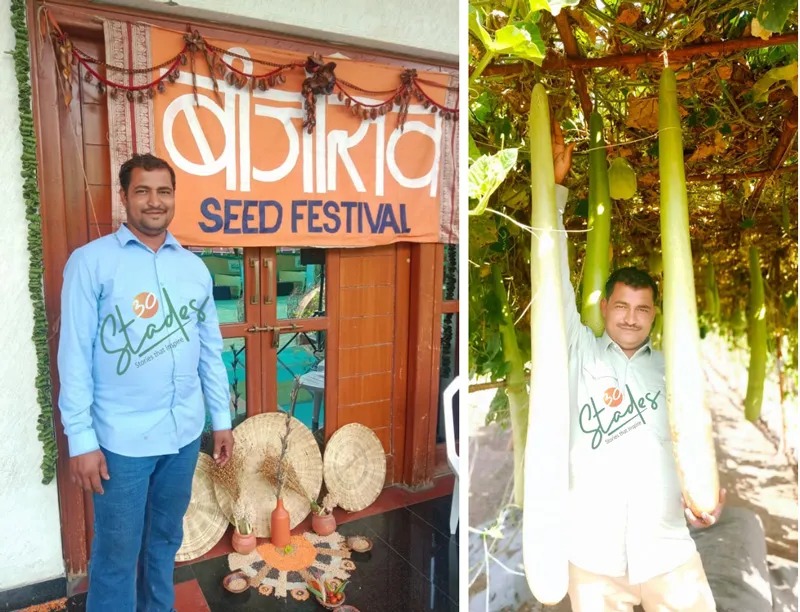In a remarkable grassroots initiative to safeguard India’s agricultural biodiversity, Anil Gavali, a farmer from Pandharpur in Maharashtra’s Solapur district, has conserved over 350 varieties of native vegetable and fruit seeds. His work spans more than a decade and has transformed him into a key figure in India’s natural farming and seed conservation movement.
Key highlights of Gavali’s conservation journey
- Gavali’s collection includes 150 varieties of tomatoes, 60 types of brinjals, 80 banana varieties, 30 types of gourds, and 9 corn varieties
- He shares seeds freely with fellow farmers under a return model, where recipients give back double the quantity in the next season
- For home gardeners and enthusiasts, he sells curated seed packets via courier, ensuring access to rare native varieties across India
- His farming practices are entirely chemical-free, spread over 20 acres, and rooted in traditional natural farming methods
How it all began
- The journey started in 2010 after a personal health crisis in the family led Gavali to explore the nutritional value of native crops
- A doctor’s appreciation for native garlic from his farm sparked his interest in preserving indigenous varieties
- He began collecting seeds from tribal seed festivals and farmer networks across India, traveling to over 450 cities including in Uttarakhand, Kerala, Assam, and Chhattisgarh
Seed exchange and community impact
- Gavali actively participates in tribal seed festivals, exchanging native garlic, cucumbers, and musk melons for other indigenous seeds
- His efforts have helped revive several near-extinct varieties and inspired a growing community of farmers to adopt native seed conservation
- The initiative has also created awareness about the nutritional and ecological benefits of traditional crops, especially in the face of climate change and monoculture farming
Future outlook
Gavali’s work underscores the importance of decentralized, farmer-led conservation in preserving India’s agricultural heritage. As demand for native and organic produce grows, his model offers a replicable blueprint for sustainable farming and biodiversity protection.
Sources: 30 Stades, Inshorts.








